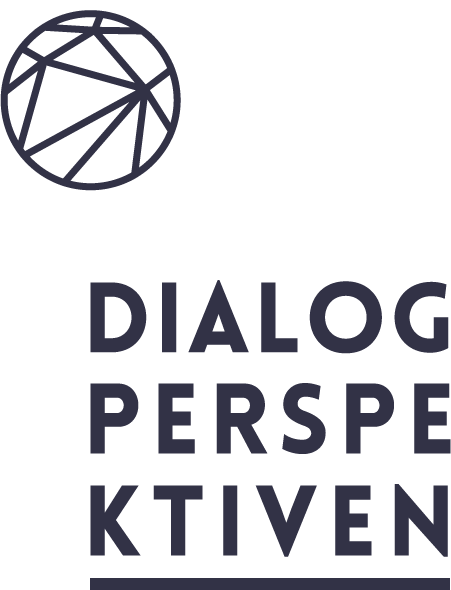Can the freedoms of belief and association be sold to pay utility bills?
by Evrim Can İflazoğlu (Hungary)
On 7 October 2022, Turkey’s kleptocrat[i] Erdoğan announced his government will establish a new Department of Alevi Bektashi[ii] Culture and Cemevi[iii] under the Ministry of Culture and Tourism. He gave the good news that the utility bills of Cemevis will be covered by the state budget and added, ‘Every single individual of our 85 million people is a first-class citizen of our state.’[iv]
Okay, let us limit ourselves to this piece of information. First, why establish a department for a religious minority group within the Ministry of Culture? You may think that Turkey is a secular country and that all religions have their departments within the Ministry of Culture because they are a part of the country’s cultural richness. Wishful thinking… In Turkey, the state has the monopoly on (not only recognising but also) defining what is religion and what is not. Consequently, if the state recognises a religion, it is handled via the Presidency of Religious Affairs (Diyanet), if not… Believers may establish an NGO… Secondly, what has changed? And, has the government decided to pay the bills? In return for what? And did you notice, Erdoğan said ‘first-class citizenship?’ Since when are there degrees of citizenship?
Turkey has had no state religion since 1928 and has been officially secular since 1937. However, salute to Orwell, all religions are equal, but some religions are more equal than others in Turkey. The Sunni Hanafi denomination of Islam has been officially promoted by the Presidency of Religious Affairs (Diyanet) since 1924, when the state began to control all groups associated with Islam and teach them ‘true Islam’. Which means denying others, including the religiosity of Sunnis.
Thanks to the EU accession process, this denying of ‘others’ began to soften in the 2000s. Many properties, including the places of worship of Christian and Jewish minorities that had been confiscated, were returned to their owners, and some legal arrangements were made to renovate the places of worship of legally unrecognised religious groups such as the Syriacs. Many small steps were taken towards religious freedom within the EU accession process. However, the state still failed to recognise some religious groups, instead acknowledging only their associations and foundations. Although some of these NGOs were established starting in the 1960s, they boomed in the 2000s. For a long time, such NGOs were not allowed to include the names of religions (such as Alevi). Rather, they were seen as associations working in fields of culture, tourism promotion, hometown societies, solidarity, charity, or mosque construction.
Under the reforms of the EU harmonisation process, civil society, including religiously orientated NGOs, was supported. However, especially after the 2010 constitutional reform and the Gezi Park protests in 2013, the Erdoğa regime fully seized the Diyanet. It was also at this time that he started to perceive civil society as a threat to his authority. This is true to some extent. Civil society is an important force for the rights-seeking of disadvantaged communities and for the transparent auditing of public institutions. This, eventually, disturbs all authoritarian regimes. During the coup attempt in 2016, Diyanet’s 84 thousand mosques in the country called people to the streets against the coup. Testing the political influence of religious institutions, the Erdoğa regime began to make more radical interventions for the control of all religious institutions, including interfering in the electoral processes of minority foundations. He thus positioned himself as the sole authority on what was and was not religious.
One of the massive institutionalisations occurred among Alevis in Turkey. Although Alevis had begun founding their NGOs long before, the 1990s and especially the 2000s were the peak. Hundreds of Alevi cultural centres and Cemevis were established, and various Alevi organisations demanded the same rights[v], the lack of which had become visible, including some rights violations[vi] brought to the European Court of Human Rights. For instance, in 2014, the ECHR decided that ‘[d]enying the Alevi community exemption from electricity bills – granted to places of worship – was discriminatory.’[vii] As a member of the Council of Europe, Turkey is obliged to enforce the court decision and undertake legal reforms. However, the Erdoğan regime was enjoying the monopoly of the Diyanet speaking on behalf of Islam and recognising Cemevis as a place of worship would undermine this privilege. Also, there was an election coming and Erdoğan did not want to upset his political Islamist supporters whose votes were very crucial to him to strengthen his electoral autocracy.
After 8 long and torturous years, Erdoğan decided[viii] to act and established the Department of Alevi Bektashi Culture and Cemevi to pay the bills of Cemevis in return for direct state management of all NGOs that had been founded and run by Alevis. That means the confiscation of civil society property by the regime and the violation of not only religious rights, but also of the freedom of association. Instead of neutrality, the state is getting involved in managing all religious groups and their religions. Erdoğan jumped into the election processes of minority foundations and regulated the law.[ix] However, in this case, the state does not recognise Alevi places of worship as religious institutions, instead viewing them as cultural centres that it is authorised to manage.
To sum up, the Erdoğan regime continues to confiscate religious institutions, as the state has been doing for a hundred years. Ironically enough, he ended a century-long discrimination and tried to seize Alevism, too. The Alevi movement has been demanding equal citizenship for more than three decades and Erdoğan gave them ‘the opportunity’ of first-class citizenship in which the state rules and the citizen obeys. Alevis had baglama and semahcourses, now they must wait for the department’s approval. They were organising commemorative ceremonies and concerts, and now the department will decide on their behalf what is worth remembering. They were choosing their Dedes to conduct the Cem ceremony, and now the department will appoint its favoured Dedes who can teach Alevis ‘the true Alevism’.
[i] For a wider description of the term, please see: https://www.cam.ac.uk/kleptocracy
[ii] For those who have not heard the terms Alevi or Bektashi before, they are the names of religious minorities living mainly in Turkey, its neighbouring countries, and Europe. Turkey has not yet legally recognised this religion. The main demand of Alevis in Turkey is for equal citizenship, which means an end to state discrimination. Hereafter, I will use Alevi and Alevism as umbrella terms to refer to Alevis, Kizilbashs, and Bektashis.
[iii] The prayer-houses of Alevis. They generally serve as a social complex with a place of worship, dining halls, classrooms, meeting rooms, morgue, etc.
[iv] https://www.tccb.gov.tr/haberler/410/140032/-85-milyon-insanimizin-her-bir-ferdi-devletimizin-birinci-sinif-vatandasidir-
[v] The demands of the Alevi movement can be summarised as equal citizenship, recognition of Cemevis as prayer houses, abolition of mandatory religious classes, abolition of the Presidency of Religious Affairs, transformation of the Madımak Hotel into a museum of shame, the abandonment of the policy on constructing mosques in Alevi villages, the return of Alevi lodges to Alevis, an end to state discrimination.
[vi] Those are: 2007 Hasan and Eylem Zengin/Türkiye, 2010 Sinan Işık/Türkiye, 2014 Mansur Yalcin and others/Türkiye, 2014 CEM Foundation/Türkiye, 2016 Izzettin Dogan and others/Türkiye.
[vii] Cumhuriyetçi Eğitim Ve Kültür Merkezi Vakfi v. Turkey (application no. 32093/10) https://hudoc.echr.coe.int/app/conversion/pdf/?library=ECHR&id=003-4952135-6065927&filename=003-4952135-6065927.pdf
[viii] Presidential Decree of 9 November 2022: https://www.resmigazete.gov.tr/eskiler/2022/11/20221109-11.pdf
[ix] https://www.dailysabah.com/turkey/minorities/turkey-finalizes-long-awaited-minority-foundations-regulation

Evrim Can İflazoğlu. 1990, Ankara, Turkey.
The University of Szeged, Doctoral School of Philosophy. His research interests are the governance of religions, religious pluralism, and secularisation theories. Co-authored the book „Vardan Yoğa“ (From Presence to Absence), based on fieldwork that recorded Alevis‘ tangible and cultural heritage in Çorum and Amasya provinces. Co-edited the extended version of a symposium book „Öteki Olarak Ölmek” (Dying as Other), which was compiled on the death experiences of ethnic, religious, and sexual minorities in Turkey: intervention made to their dead bodies, state violence in funerals, and grave destructions. Obtained his MA degree from Ankara University with the project “Political Socialization and Cemevis” under the supervision of Prof Ayhan Yalçınkaya. Worked as an advisor in the Grand National Assembly in Turkey between 2014-2020. Served as a board member of the Mülkiye Alumni Association between 2018-2020. Participant in the DialoguePerspectives program since 2021.
